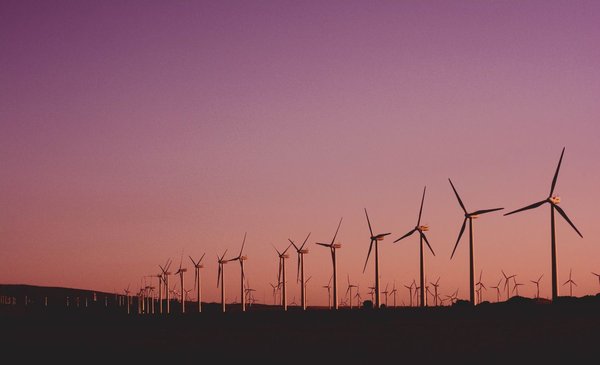The four reasons why Uruguay is the epitome of sustainability, according to the World Economic Forum

A recent article published by the World Economic Forum highlighted the benefits of Uruguay as a successful country in terms of sustainability.
Uruguay is the smallest Spanish-speaking country in South America, famous for its well-developed coastline, high standard of living, low poverty rates, and a soccer team that tends to be among the best on the planet. It is also one of the most in the world, with 98% of Renewable electricity, according to the United States International Trade Administration,” the article describes and adds that, after a rapid energy transition, renewable energies help cut more than $500 million from Uruguay’s annual budget.
In this respect, the publication emphasizes four key aspects that justify its good performance in terms of sustainability.
1. Investing in renewable energy
“Biomass, solar and about 50 wind farms have replaced oil use from the grid, according to The New York Times,” the post details.
At the same time, investment in renewable energy stands out, which has encouraged an increase in the export of surpluses as environmentally friendly electricity. In 2021, Uruguay generated 14.04 terawatts of electricity (20% more than in 2020), 1,119 terawatts for domestic demand and exported 2,200 megawatts to Brazil plus 627 megawatts to Argentina, according to data from the United States Department of International Trade.
The WEF is also hinting at the Uruguayan government’s roadmap for green hydrogen generation that could position the country as one of the major exporters of the gas, generating US$2.1 billion in revenue and up to 34,000 jobs by 2040.
2. Electrification of transportation
The World Economic Forum edition highlights that Uruguay is taking measures in the transportation sector to promote the use of electric vehicles. The country imposes tax breaks on the purchase of electric cars and reduces permit costs for electric taxis. The United Nations says that by 2020, 32 electric buses and 76 electric taxis have been added to the fleet.
The country has also joined the Coalition for a Decarbonized Transport 2022, an international collaboration to accelerate the global shift towards net-zero mobility by 2050.
3. Efforts to reduce methane emissions
It ranks among the world’s top 10 beef exporters, with meatpacking plants shipping 423,390 tonnes last year, according to the publication. The country must grapple with issues with methane emissions, as livestock is responsible for more than 14% of all Greenhouse gas emissions from human activities, according to the United Nations, and methane-producing livestock account for about 65%.
In this sense, the World Economic Forum highlights Uruguay’s commitment to combating methane emissions, as it is one of 150 countries that have signed the global commitment against methane, which aims to reduce them by 30% this decade.
In contrast, among the latest ministerial plans for the commitment made at COP27 is a proposal to help small farmers in Kenya, Rwanda, Tanzania, Uganda, Costa Rica, Uruguay, Colombia, Pakistan and Vietnam to reduce methane in their dairy systems.
In addition, in 2021, the country became the first country in South America to export carbon-free beef, certified by the LSQA certification body. This has been achieved through the use of natural pastures, as well as through the preservation of local forests.
4. An expanding green business ecosystem
“No green economy is possible without the participation of the business ecosystem,” the report says.
Uruguay is attractive to investors because of the large companies that settle there, attracted by the stability of its economy and its sustainable energy. According to consultancy McKinsey, this has contributed to the vitality of the green startup ecosystem.
This green business represents an important economic opportunity – possibly up to 50% of GDP – and will obviously accelerate the country’s socio-economic development, while enhancing sustainability for the planet,” says Xavier Costantini, Senior Partner of McKinsey in the document prepared by the World Economic Forum. .

“Award-winning zombie scholar. Music practitioner. Food expert. Troublemaker.”


/cloudfront-eu-central-1.images.arcpublishing.com/prisa/X33WQ3GSYFF3DBKJDAVIGHN3DA.jpg)





:quality(70)/cloudfront-us-east-1.images.arcpublishing.com/elfinanciero/YDG4472QRJGMPHNKW6S4XD76GI.jpeg)
